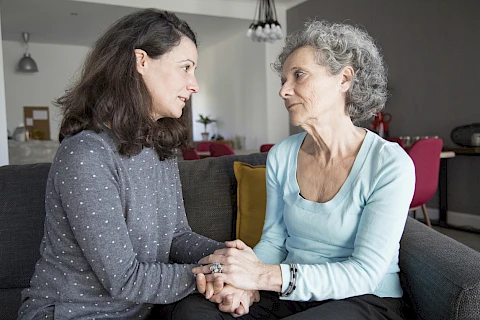
World Mental Health Day is a vital reminder of the need for awareness and action on mental health issues. For caregivers of seniors, this day offers a special opportunity to focus on the emotional well-being of the older adults in their care. Understanding the mental health challenges that seniors face and knowing how to provide support are crucial steps toward improving their quality of life.
Common Mental Health Challenges in Older Adults
Depression is one of the most common mental health issues among older adults. Feelings of sadness, changes in appetite, and loss of interest in activities can be signs of depression. Recognizing these signs early can make a big difference. Many seniors also experience anxiety, which can manifest as constant worry, restlessness, or physical symptoms like trembling or sweating. Addressing these symptoms promptly is important to ensure their mental well-being.
Cognitive decline, including dementia, affects many older adults. Memory loss, confusion, and difficulty completing everyday tasks are common symptoms. Early detection and support can improve the quality of life for those affected. Loneliness and social isolation are also significant concerns for seniors. Lack of social interaction can lead to feelings of loneliness and can negatively impact mental health. Encouraging social connections can greatly alleviate these feelings.
Strategies for Providing Support and Encouragement
Communication is key to supporting a senior's mental health. Practice active listening and encourage them to express their feelings. This helps them feel heard and valued. Creating a safe and comfortable living space is essential. Ensure their home is a place where they feel secure. Engaging in activities and hobbies they enjoy can also foster a positive atmosphere.
Regular exercise and a balanced diet contribute to mental well-being. Encourage activities like walking or light exercises and ensure they have access to nutritious meals. Help seniors stay connected with family and friends. Encouraging community involvement, such as joining local clubs or attending events, can help combat loneliness and isolation.
Accessing Professional Help
Knowing when to seek professional help is crucial. Watch for signs like persistent sadness, withdrawal from social activities, or significant changes in behavior. Early intervention can prevent worsening conditions. There are various forms of professional support available. Therapy and counseling provide a space for seniors to talk about their feelings. Medical treatment, including medications, can also be effective in managing mental health issues. Not only are many of those services available through local providers, you may be able to find therapists or psychiatrists online.
Connect with Senior Caregivers to Support Mental Wellness
As a caregiver, supporting the mental health of seniors is a vital part of your role. By recognizing common mental health challenges and employing strategies to provide support, you can make a significant difference in their lives. Take action today: encourage open communication, create a positive environment, promote physical health, and build social connections. When needed, don't hesitate to seek professional help.
If you need further assistance caring for a senior loved one, including companionship services that can boost mental health, contact Senior Helpers Yorktown Heights. We're here to support caregivers in Carmel, Mahopac, Ossining, Waccabuc, and Croton-on-Hudson.